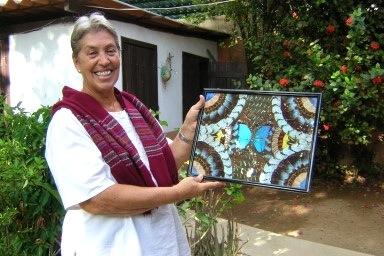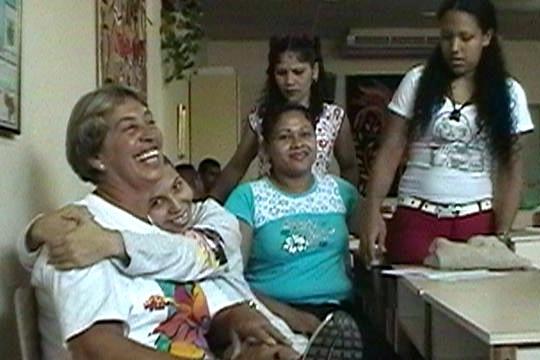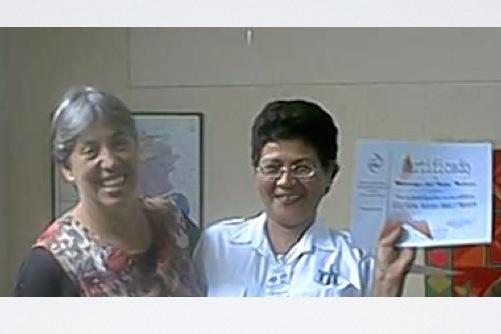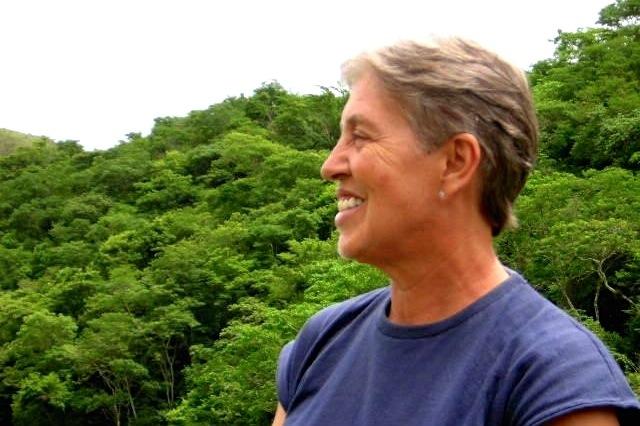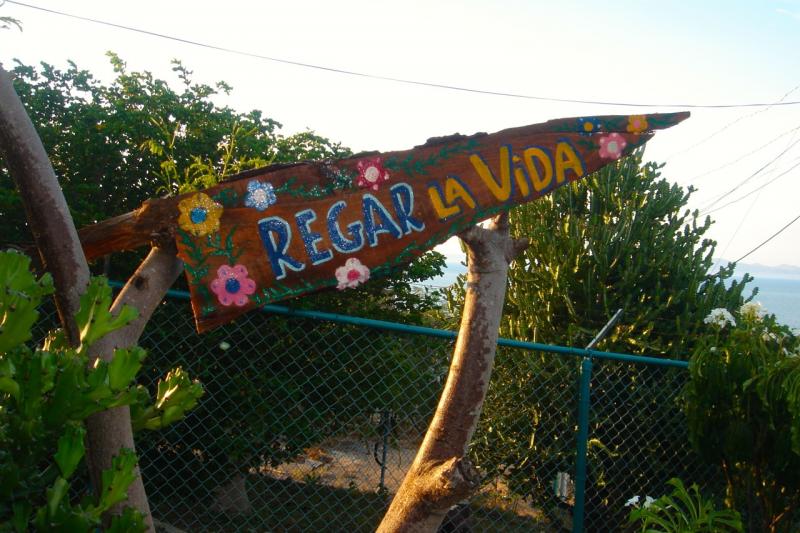I am a woman who has been born twice; a woman born, and re-born.
The first birth had its origin in a decision made by my parents, on 3rd of May 1942 in Madrid. The second, the re-birth, was the fruit of my decision, my choice to live amongst the Venezuelan people, and was realised in 1990 when I obtained Venezuelan nationality. My Spanish roots have been enriched by the life energy of Venezuela, enhancing in me a great multicultural sensitivity and a special affection for the people of Bolivar and the people of Quijote.
I was born into a household of women, my father being the only male. I have been told of the disappointment on his face on hearing that he now had another daughter. In spite of that, my experience was of his closeness and tenderness towards all his daughters. From the start I lived with a special awareness of being a woman and a sister. We were very close, and we supported and defended one another as a group in all of our life situations.
Another memory: I had a particular love of plants; I cared for them, watered them and spoke to them. I realised much later, with a deep ecological consciousness, how that had influenced many choices in my life.
I was educated in the Sacred Heart School (Madrid), learning there how to live from the heart. Thus it was that when the time came for me to choose my path in life I was guided by the two significant experiences in my story: being a sister, and living from the heart. Today I am a Sacred Heart Sister, a congregation with a long history, from 1800 till the present day.
I entered when I was 20 years old. I chose to work as an educator from the start, not in schools but in villages where conditions were more difficult. I was always involved in Educación Popular, as that was where my heart and intuition drew me. My first experience of the hard life of rural communities was in the village of Castañuelo, Huelva, in the south of Spain. There, I admired the courage of the women and deepened my love for nature. I discovered that I was able to respond creatively to situations that arose and my life became entwined with the struggles of the people.
In 1974 when I was 30 years of age I was called to the East of Venezuela, in the Paría Peninsula. The separation from my family and my roots pained me deeply, but my vocation and the attraction in the depth of my being of risk and adventure were stronger.
From the start I worked in a team with the sisters in the community, understanding that love is realised in shared historical responses to situations. In responding to what the people needed, we formed an itinerant community, spending certain periods in each village and supporting the different needs of each one. In this way we became a link among various groups and programmes. In Paria I continued to discover and admire the courage and resilience of the women of Venezuela. The injustice and inequality there pained me.
In 1980 I moved to the community of El Peñón in Cumaná. It is a fishing village, and they had been gradually working on the development of the area. Within the framework of an Educación Popular team, we established a Community Centre as a meeting place for a variety of activities in the village. That is where I live today, in El Peñón.
One more information I would like to share with you: I have worked for eight years in an education programme with women in the prison in Cumaná. I lived that experience as reality and symbol in the twilight of my life: I love freedom, I always have, and working with women in prison means for me to defend it and create conditions for it to survive. I have learned to live more freely through my relationships with those imprisoned women: I have learned with admiration and surprise that we can even be free when we are behind bars. Is this not a parable for us women, in our present day Latin American story?
In 2005 I took part in a nomination for a Nobel Prize: “1000 Women for Peace.” This nomination signifies that what is valued and recognized is living with vitality, with energy, with empathy, and with love; and this is done not in great feats, but in the daily stuff of life.

